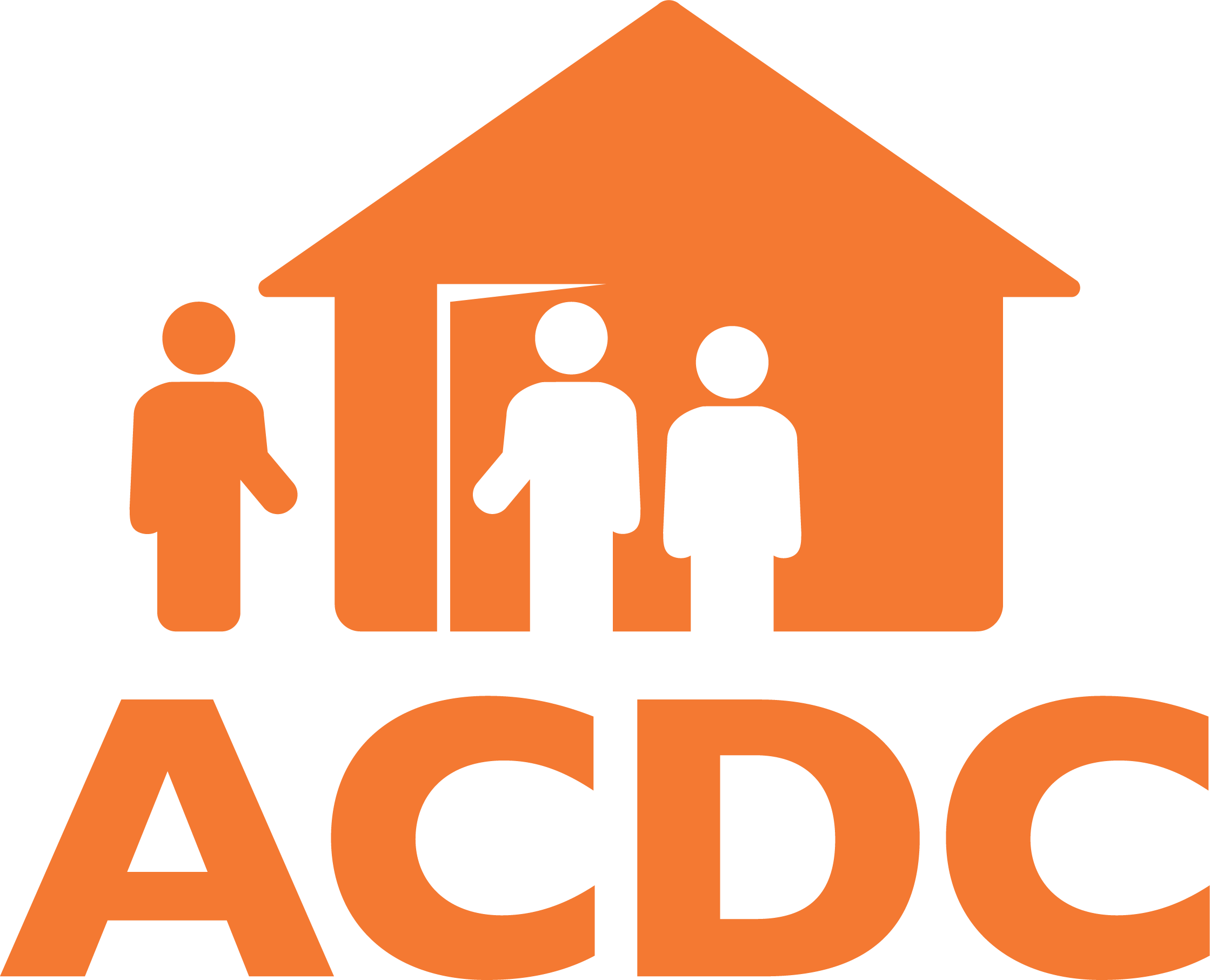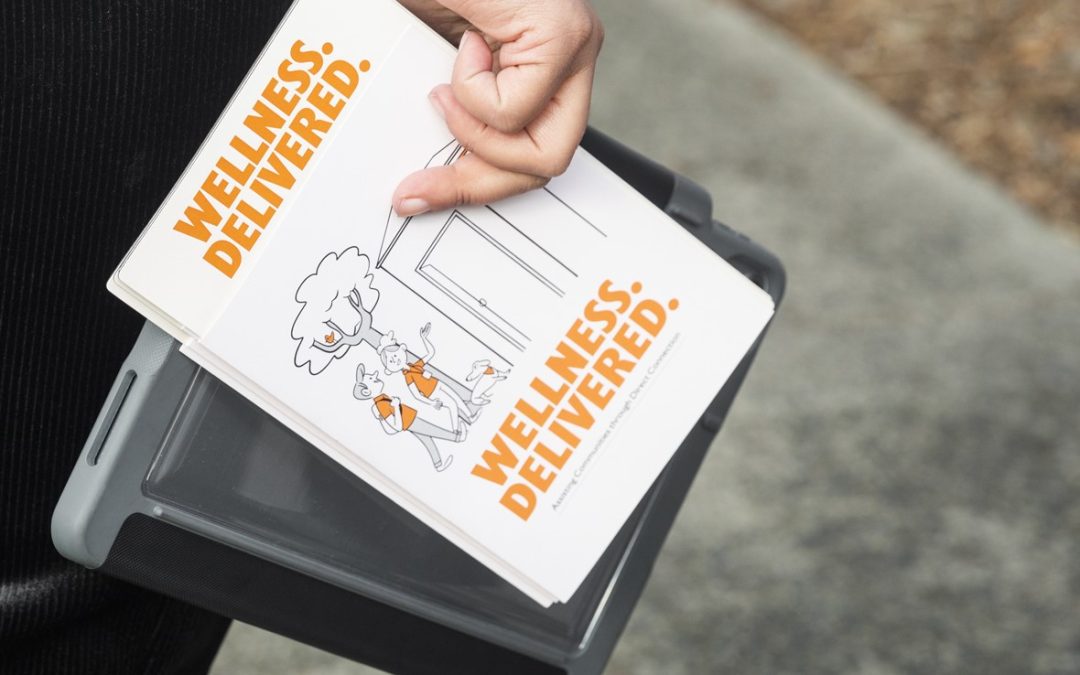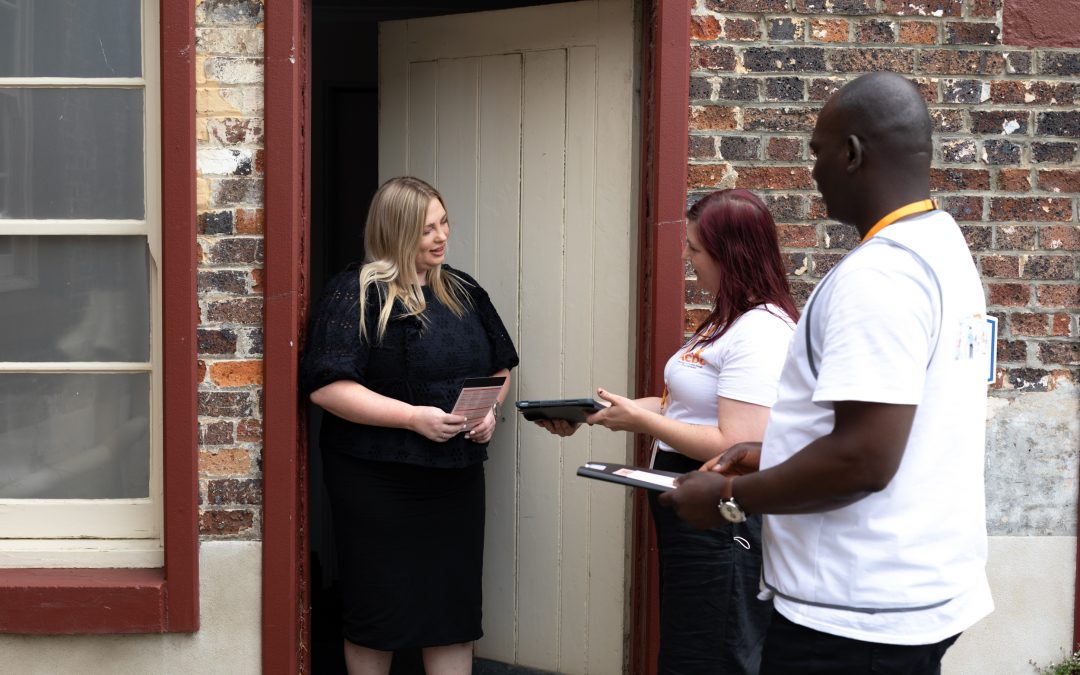Where we live, and knowing who our neighbours are, could affect our mental health more than we realise. A national doorknocking project that initiates door-step conversations with people about their mental health and wellbeing has revealed that neighbours were often top-of-mind for people in these discussions.
The Assisting Communities through Direct Connection (ACDC) Project aims to reach out to people through doorknocking. Since 2021, 27 communities across all states and territories have implemented the project, and over 10,000 people have had conversations about the impact of mental health in their life. It is hoped that through a personalised conversation, people have more awareness of their wellbeing, their support needs and what psychosocial and wellbeing supports are available in their local communities. The ACDC Project, is a project of Community Mental Health Australia, with the Centre for Social Impact as the evaluation and research partner.
The evaluation has highlighted some surprising findings; that many people express concern for their neighbours and neighbourhoods, and care about how their local communities are tracking. When People Connectors, who do the doorknocking, asked about mental health, often householders wanted to discuss their neighbours. While this was not initially expected, according to People Connectors, householders were often aware when people on their street didn’t seem to be doing well.
“There was a lady… [who] basically said ‘Oh no, no, I’m fine, but I am a bit concerned about my neighbour’ … I think that happened a couple of times.” (Doorknocking team manager)
The doorknocking approach enabled People Connectors to easily follow-up on these concerns and check-in on neighbours. They said it was heartening to see people showing care and concern for each other, when it wasn’t expected or prompted.
“Sometimes people say, ‘Look, I don’t need [help] but…’ And then they show so much care for the [neighbours’] wellbeing. Which I think has been a really surprising finding for me – how much people care about the wellbeing of their neighbourhood.” (People Connector)

Not only did people care about others in their neighbourhood, when asked what they needed to be safe and well themselves, many householders reported that having neighbours they get along with was very important. For some, a quality connection with their neighbours was as important for their wellbeing as their family, or even the family dog.
“Well, I have very good neighbours that makes a big difference.”
“I have my sons and my close friends and neighbours for support.”
“I’m happy here, I’ve got good neighbours and a good housemate. It’s a good spot.”
“A dog. Family and good neighbours.”
“Safe playground for my kids, Family Doctor and caring neighbours.”
“Thankfully I have my daughter, without her I don’t think I would have coped. Also, now that I am in a new apartment and have my own kitchen and have met a couple of my neighbours, I’m doing a bit better.”
Relationships with neighbours perhaps anchor us with feelings of safety and reassure us that immediate, proximate support is at hand. Sometimes even just knowing that trusted people are close by is enough to help with a sense of safety and wellbeing.
“Knowing neighbours and friends are around.”
“When neighbours and friends are supportive, that helps.”
Other householders described their relationships with neighbours as a very significant support, where people proactively looked out and helped one another.
“Family, craft group and neighbours. We all support each other and help if or when needed.”
“We are really so wonderful here, we look after each other and meet every morning for morning tea and chit chat. I love doing the gardening and the ladies advise me on what needs doing and I get in and do it…. I do some shopping for my neighbour too and we support each other.”
“I help my neighbours and that keeps me occupied. We look out for each other and I have no problem calling the police if I can’t handle the ones getting into mischief.”
Some people described a general feeling of security that came with having friendly neighbours and neighbourhoods, a feeling and sense of belonging that extended to participating in local activities, such as shopping.
“Security in home. Friendliness and comfortability in my own community like local shops, neighbours and activities.”
This project has been conducted since 2021 and continues into 2024. The impacts of the pandemic over these years, especially on those communities who experienced extended lockdowns, may have enhanced feelings of social isolation and heightened our awareness of how much a connection with neighbours and neighbourhoods can affect our wellbeing.
Although lockdowns are no longer affecting Australian communities, increased financial pressure and the impacts of natural disasters in 2023, may be leading to heightened levels of stress, anxiety, and experiences of isolation. In this context, the feeling of solidarity with people who live on your street, and the occasional friendly wave, or small gesture or show of support towards your neighbours, could mean more than you know.
Community Mental Health Australia (CMHA) and the Centre of Social Impact (CSI) are proud to highlight this innovative project for Mental Health Week Awareness Month. Mental Health Awareness Month is a time when communities, organisations, and individuals come together to raise awareness about mental health, reduce stigma, and promote the importance of mental wellbeing. The ACDC Project represents a significant step toward achieving these objectives.
Thanks to Dr Leanne Lester and Yasmine Hooper for help exploring the data for this article. To read our report about this project, visit the Centre for Social Impact website.
To learn more about this project, which is funded by the Department of Social services, please visit acdc.org.au.
About Community Mental Health Australia (CMHA)
Community Mental Health Australia (CMHA) is a coalition of peak community mental health organisations from Australian States and Territories. It was established to provide leadership and direction to promote the importance and benefits of community mental health and recovery services across Australia. CMHA provides a unified voice for several hundred community-based, non-government organisations who work with mental health consumers and carers across the nation and who are members of, or affiliated with, the various coalition members.
Website: www.cmha.org.au
About Centre of Social Impact (CSI)
The Centre for Social Impact’s purpose is to catalyse positive change, to help enable others to achieve social impact. We do this through developing transformational research, education programs and solutions that are rigorous and purpose-driven, and by working with people, communities and organisations across Australia to grow their capabilities.
Website: www.csi.edu.au
Written by Lisette Kaleveld and Raymonda Dijkwel




